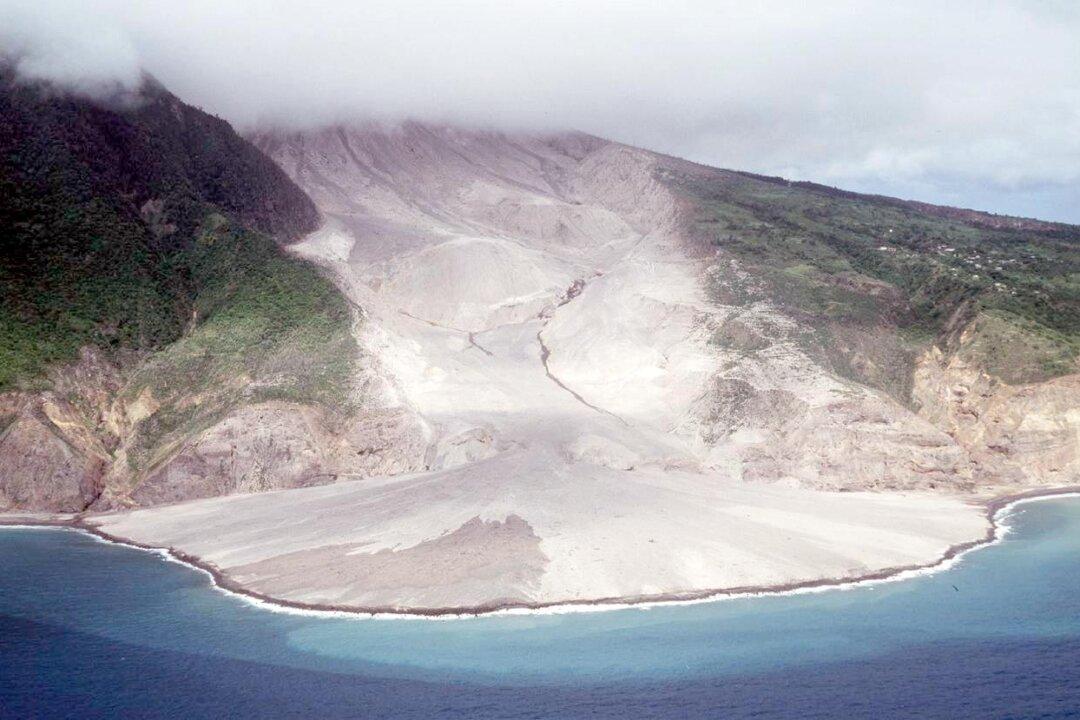SAN JUAN, Puerto Rico—An explosive eruption rocked La Soufriere volcano on the eastern Caribbean island of St. Vincent on Friday following mandatory evacuation orders from the local government.
Emergency management officials said the ash column rose about 20,000 feet high and that the ash was headed east into the Atlantic Ocean.





